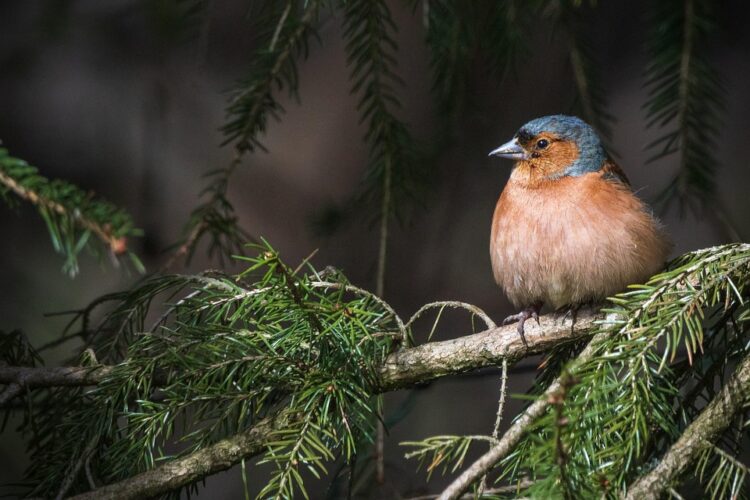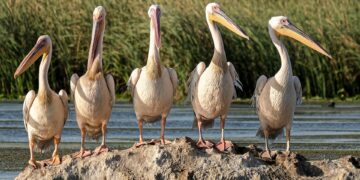Guardians of the Earth: The Imperative of Preserving Ecosystems
As the stewards of this planet, it is our responsibility to protect and preserve its delicate ecosystems. The health of our planet is directly tied to the health of its ecosystems, which provide essential services such as clean air, fresh water, and fertile soil. In recent years, human activities have put immense pressure on these ecosystems, leading to widespread degradation and loss of biodiversity. In this article, we will explore the importance of preserving ecosystems, the threats they face, and what we can do to ensure their protection for future generations.
The Importance of Ecosystems
Ecosystems are the natural systems that support life on Earth. They consist of a complex network of living organisms, such as plants, animals, and microorganisms, as well as their physical environment. Ecosystems provide a wide range of services that are essential for human well-being, including:
- Regulation of Climate: Ecosystems play a crucial role in regulating the Earth’s climate by absorbing carbon dioxide from the atmosphere and releasing oxygen through photosynthesis.
- Water Purification: Wetlands, forests, and other ecosystems filter pollutants from water, ensuring clean and safe drinking water for humans and wildlife.
- Soil Fertility: Ecosystems help maintain the fertility of soil by cycling nutrients and preventing erosion, which is essential for agriculture and food production.
- Biodiversity: Ecosystems support a diverse array of plant and animal species, which contribute to genetic diversity and ecosystem resilience.
Threats to Ecosystems
Despite their importance, ecosystems around the world are facing unprecedented threats from human activities. Some of the major threats to ecosystems include:
- Habitat Loss: The conversion of natural habitats into agricultural land, urban areas, and infrastructure projects has led to the loss of biodiversity and fragmentation of ecosystems.
- Climate Change: Rising temperatures, changing precipitation patterns, and extreme weather events are disrupting ecosystems and causing shifts in species distributions.
- Pollution: The release of pollutants into the air, water, and soil is degrading ecosystems and threatening the health of plants, animals, and humans.
- Overexploitation: Unsustainable harvesting of resources, such as overfishing and deforestation, is depleting ecosystems and driving species to extinction.
Preserving Ecosystems for Future Generations
It is clear that urgent action is needed to protect and preserve Earth’s ecosystems for future generations. Here are some ways in which we can work together as guardians of the Earth:
Conservation and Restoration
Conservation efforts play a crucial role in protecting ecosystems from further degradation. This includes establishing protected areas, such as national parks and wildlife reserves, where ecosystems can thrive undisturbed. Restoration projects, such as reforestation and wetland restoration, can also help to rehabilitate degraded ecosystems and enhance their resilience to future threats.
Sustainable Development
It is important to promote sustainable development practices that minimize the negative impacts of human activities on ecosystems. This includes sustainable agriculture, fisheries, and forestry practices that maintain the health of ecosystems while meeting the needs of humans. Sustainable urban planning and infrastructure development can also help to reduce habitat loss and fragmentation.
Climate Action
Addressing climate change is essential for protecting ecosystems from the impacts of rising temperatures and extreme weather events. This includes reducing greenhouse gas emissions through the transition to renewable energy sources, such as solar and wind power. Supporting climate adaptation measures, such as the protection of coastal ecosystems from sea-level rise, is also important for maintaining ecosystem health.
Education and Awareness
Education and awareness-raising are key to fostering a culture of environmental stewardship and inspiring action to protect ecosystems. By educating people about the importance of ecosystems and the threats they face, we can empower individuals to make informed choices that support ecosystem conservation. Engaging with local communities and indigenous peoples, who often have valuable knowledge about ecosystems, is also important for effective conservation efforts.
Conclusion
As guardians of the Earth, it is our responsibility to protect and preserve its ecosystems for the benefit of all living beings. By taking action to conserve and restore ecosystems, promote sustainable development practices, address climate change, and raise awareness about the importance of ecosystems, we can ensure a healthy and sustainable future for our planet. Together, we can be the guardians of the Earth and secure a thriving world for generations to come.
Let’s join hands and work together to protect and preserve Earth’s ecosystems!











